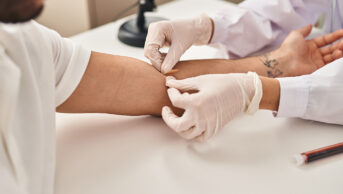Binge drinking continues to be a concern, with alcohol misuse in England costing society around £21bn in 2013. In 2003, a survey found 70% of accident and emergency (A&E) attendances in England between midnight and 5am — and 40% overall at weekends — are related to alcohol.
In 2013, there were 60,830 injuries presenting to A&E in England in which alcohol was recorded as a cause. More than 9,000 of these injuries were intentional and included 3,370 cases of assault.
Given these statistics, it is hardly surprising that the health secretary Jeremy Hunt has said he would “be open” to charging people to visit A&E if they have been drinking. Speaking on LBC Radio on 10 September, Hunt suggested a fee for those who have gone “over the top”, or binge drinking.
This would be a mistake.
As Hunt identified, this would be a difficult health policy to implement in a busy A&E. Such a move would undermine one of the NHS’s three founding principles: being free at the point of delivery.
There are practical concerns, too. Healthcare professionals do not have the powers of the police and cannot be expected to breathalyse patients who they suspect to be drunk. Moreover, the threat of a charge would not deter anyone from drinking to excess — no one plans to end their night out in traction. Population studies have shown binge drinking is most common in deprived areas; so what if someone cannot afford to pay?
Charging drunk people in A&E could open the door to other types of charges for patients, for smokers or the obese, for example.
As with other public health problems, curbing alcohol misuse requires a multifaceted approach based on understanding. Pharmacies have already shown their effectiveness in delivering brief, five-minute interventions for those at risk of alcohol dependence, which help one in eight participants to reduce their level of drinking. This type of supportive, non-judgmental approach can make the intervention rewarding for patients rather than punitive.
Alcohol misuse is probably as old a problem as alcohol use itself, and there will be no quick fix. As the public is encouraged to be ‘drink aware’, it can be hoped that levels of misuse will decline gradually, as we have seen with smoking. It will be a persistent challenge, but it will not be solved by an admissions fee.


